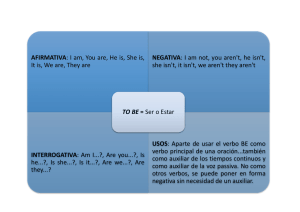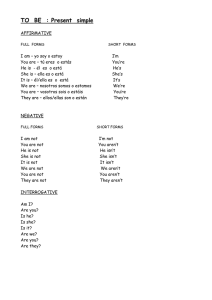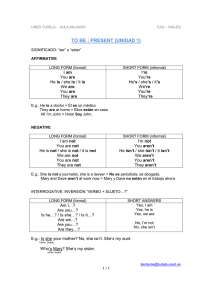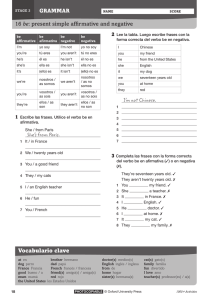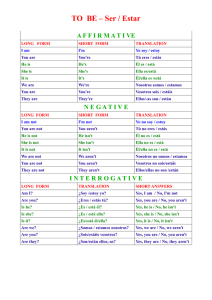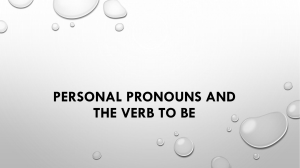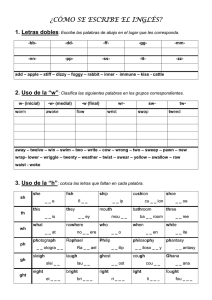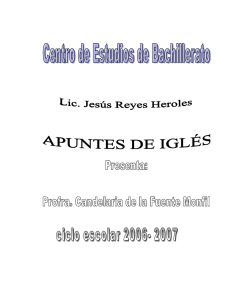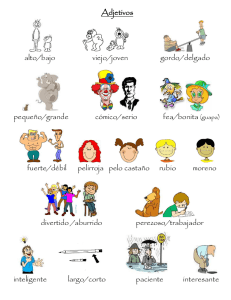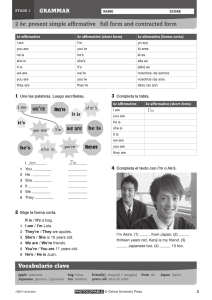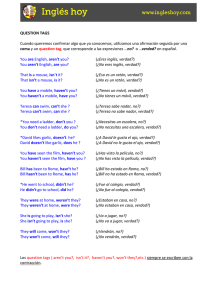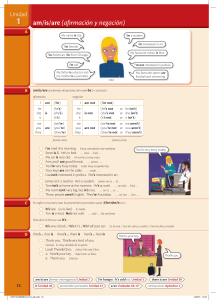TO BE – Ser / Estar
Anuncio
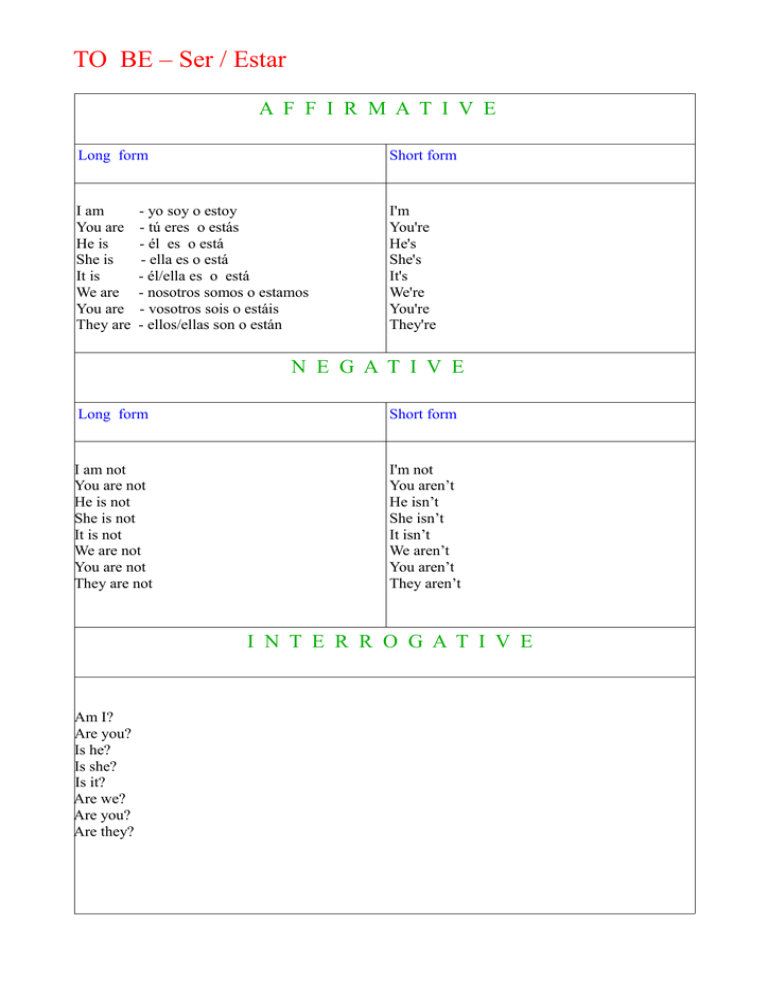
TO BE – Ser / Estar A F F I R M A T I V E Long form Short form I am You are He is She is It is We are You are They are I'm You're He's She's It's We're You're They're - yo soy o estoy - tú eres o estás - él es o está - ella es o está - él/ella es o está - nosotros somos o estamos - vosotros sois o estáis - ellos/ellas son o están N E G A T I V E Long form Short form I am not You are not He is not She is not It is not We are not You are not They are not I'm not You aren’t He isn’t She isn’t It isn’t We aren’t You aren’t They aren’t I N T E R R O G A T I V E Am I? Are you? Is he? Is she? Is it? Are we? Are you? Are they? TO BE : USOS Usamos el verbo “ be” para: PRESENTARNOS : I’m Paul and this is my friend James (Soy Paul y éste es mi amigo James) SALUDAR : Hello, how are you? (Hola, ¿ cómo estás? DISCULPARNOS : I’m sorry, Mum (Lo siento,mamá) EXPRESAR LA PROFESIÓN : We are teachers (Somos profesores) EXPRESAR LA NACIONALIDAD : They are English ( Ellos son ingleses) REFERIRNOS A LUGARES : My parents are in England (Mis padres están en Inglaterra) DESCRIBIR LAS COSAS : It’s an old film. It isn’t very good (Es una película antigua. No es muy buena) EXPRESAR LA EDAD : My brother is 15 years old (Mi hermano tiene 15 años) DECIR COMO NOS SENTIMOS : I am hungry (Tengo hambre) EXPRESAR EL TIEMPO : It is cold ( Hace frío) EXPRESAR LA HORA : It’s six o’clock (Son las seis) EXPRESAR LA FECHA : It’s Monday ( Es lunes)
